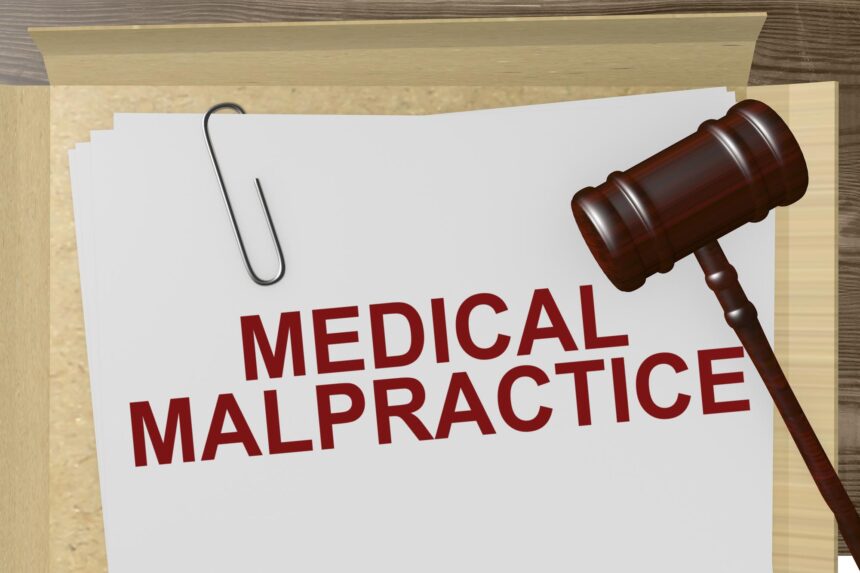Unfortunately, medical malpractice is more common than you think. Victims aren’t usually compensated either. An astonishing 65 percent of malpractice claims are withdrawn, with only 27 percent of the total claims being settled.
The last thing you want is to be a victim of medical malpractice. Not only can it affect the quality of your life in the long-term, dealing with negligent doctors and working with attorneys can be time consuming and expensive.
Save yourself the trouble by protecting yourself from medical malpractice in the first place.
Research Your Doctors
Did you know you can research your doctors? Most people just accept that their doctor is a knowledgeable expert, but it makes sense that you would want to do a little digging when you’re ready to see a new doctor, or you want to know more about your current doctor. After all, you probably do your research when it comes to new windows, appliance replacements, and contractors!
It’s easier to research your doctor than you think. Spending a little time searching on the internet will uncover important information like:
- Licensure
- Board certification
- Medical school and residency
- Actions against the doctor
- Hospital affiliations
There are other bits of information you’ll want to consider as you’re doing your research. For example, you may want to know if your doctor is older, which could mean they are more experienced. You may want to consider how long they have been practicing medicine, and you may want to search social media. You can uncover the doctor’s personality to see if they seem like someone you can trust.
Be Upfront and Honest About Your Health History
Don’t assume your doctor knows your health history already. We’re a long way away from having a singular database that all doctors can access at any time. Chances are, you’ve had tests, diagnoses, and procedures done with other doctors that your current doctor doesn’t know about.
Make sure all of your medical records are transferred from previous doctors to your current doctor, and don’t shy away from being brutally honest with them about your health habits. Your doctor isn’t there to judge you if you just can’t seem to stop smoking, if you drink more than you should, or if you rely on pain killers to get through the day. By being completely transparent, your doctor is a lot less likely to recommend the wrong treatment plan or prescribe the wrong medicine.
Don’t Be Afraid to Slow Down
Feel like your doctor is rushing you out the door? You aren’t imagining things. Doctors feel like they have to rush through appointments in order to meet with enough patients to make a profit and keep their practice open at the end of the day.
If your doctor rushes you out the door before you’ve had a chance to ask your questions, they are more likely to make mistakes. Don’t be afraid to slow down and ask all the questions you have, even if your doctor seems rushed.
If you’re having trouble getting attention from your doctor, you can request a longer appointment time. You can also consider scheduling your appointment in the morning before your doctor gets behind.
Bring Someone With You to Your Appointments
You aren’t alone if there are things you want to ask or talk about with your doctor, but your nerves get the better of you, and before you know it, you’re leaving the office without asking your doctor what you wanted to talk about.
Bringing someone with you can help. They can help you settle your nerves in the waiting room, or they can come back to the exam room with you to ensure you ask your questions.
It also lets the doctor know that others are keeping an eye on your care. Your doctor is more likely to pay attention to your case if you have someone with you than if you come to your appointment alone.
Get a Second Opinion
We expect doctors to be informed and intelligent. They are, but that doesn’t mean they don’t make mistakes.
Make sure any diagnosis is backed up with a second opinion. A second doctor can confirm your diagnosis, or they may offer a different take on your condition, helping you to avoid an unnecessary procedure.
A second opinion also gives you the chance to meet another doctor who may end up providing you with better care.
Educate Yourself on Your Condition
It’s not a good idea to Google your health symptoms, but that doesn’t mean doing a little health research is all bad. After you have been diagnosed, go online and search for information about your condition.
Just make sure you research carefully. A few tips for making sure you find accurate information about your diagnosis online include:
- Avoid researching information on websites that also have stores
- Don’t research information that comes from influencers
- When Googling, also include the name of a medical professional society when searching
- Research sources to see if they are qualified medical experts
By researching the ins and outs of your condition, you can have informed conversations with your doctor, lessening the chance of receiving the wrong medical care.
Trust Your Gut
Have a gut feeling that your diagnosis or prescription isn’t right? Pay attention to that feeling. It doesn’t necessarily mean you should stop taking your medication or cancel your surgery, but it does mean you should take a deeper dive into why you’re feeling the way you’re feeling.
Is it truly a gut feeling, or are you just feeling anxious? Does the feeling persist without going away? Do you still feel the same way after thinking and researching? If so, it might be time to rethink your doctor, your diagnosis, or your care.
Doctors always try to do their best, but they are only human, and humans can make mistakes. Unfortunately, one simple mistake can have disastrous consequences. Guard yourself from medical malpractice by being your best advocate with the tips on this list.








